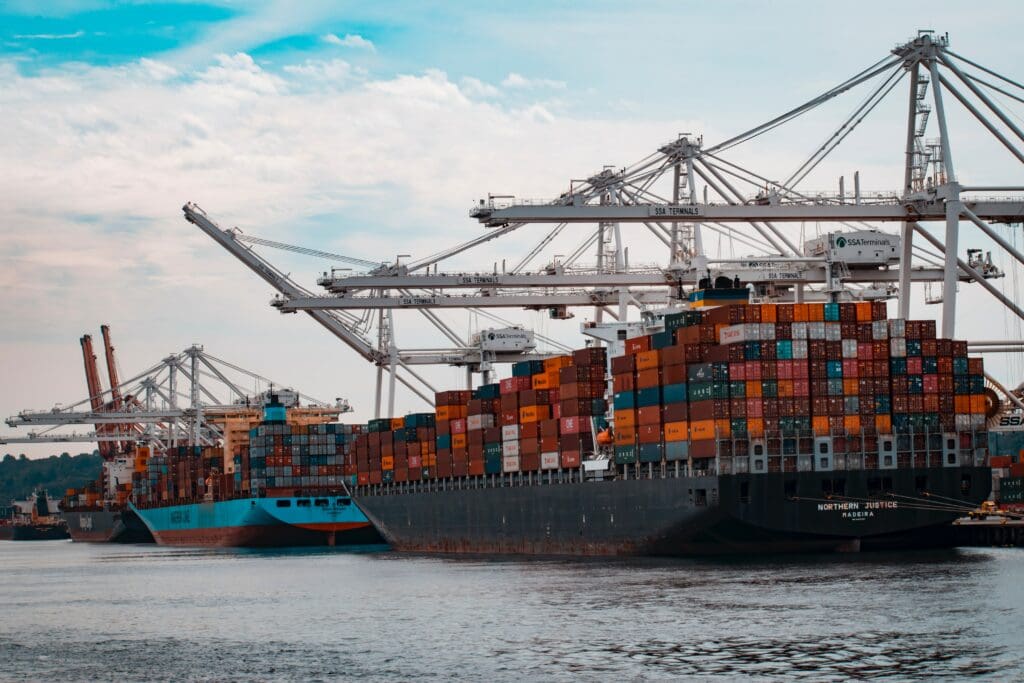
Complying With MOFCOM China Export Controls
Discover how you can comply with MOFCOM Sanctions and Export Controls with our Sanctions Screening Software.
Learn moreThe Ministry of Commerce (MOFCOM China) is the primary government agency responsible for developing and implementing foreign trade policy, import and export controls, and sanctions regulations in the People’s Republic of China.
MOFCOM’s history dates back to the foundation of the People’s Republic and the creation of the Ministry of Trade in November 1949. In the decades following, the ministry went through multiple mergers with other departments and ministries until it was reorganized as the Ministry of Commerce in 2003. Headquartered in Beijing, MOFCOM operates under the authority of China’s State Council and is currently led by Minister of Commerce, Wang Wentao.

MOFCOM is responsible for overseeing foreign and domestic trade in China and functions in a similar manner to the United States Treasury and the Office of Foreign Assets Control by acting as a regulator and working to develop and implement trade policy. An important part of MOFCOM China’s role is to oversee customers operations, strengthen China’s export controls, and improve political and economic security. To this end, MOFCOM’s functions include:
In its supervisory role, MOFCOM provides oversight for the implementation of China’s export control laws and any applicable foreign sanctions. Practically this means that it sets out compliance rules for Chinese import and export firms, including rules regarding the international sanctions that they must observe when dealing with foreign trade partners.
The Chinese government has taken recent steps to establish a MOFCOM sanctions regime. In 2020, it introduced the Unreliable Entity List which effectively functions as China’s international sanctions list. Later that year, MOFCOM worked with the National Development and Reform Commission (NDRC) to formalize a security review of foreign investments in China.
Following a wave of Western sanctions against China, on 9th January 2021 MOFCOM released its Rules on Counteracting Unjustified Extra-Territorial Application of Foreign Laws and Other Measures.
The regulation – also known as the ‘Blocking Rules’ – effectively prohibits Chinese Persons from complying with foreign sanctions, if those sanctions are deemed to ‘unjustifiably prohibit or restrict Chinese citizens, legal persons or other organizations from engaging in normal economic, trade and related activities with a third State’. Although they do not name other countries, the Blocking Rules are a countermeasure to US secondary sanctions which prohibit Chinese persons from engaging in trade with certain targets of US sanctions such as Iran and North Korea. Similar mechanisms are employed in other global jurisdictions: in 2018, the EU reactivated its own ‘Blocking Statute’ which prohibited EU firms from complying with extraterritorial legislation, specifically US sanctions imposed on Iran.
The Rules impose reporting obligations on Chinese Persons that encounter foreign sanctions that impose prohibitions or restrictions on their normal trade activities. Reports to MOFCOM must be made within 30 days of an incident – with failures to report subject to a warning or fine.
Once MOFCOM China has received a report it will make a determination on the justifiability of the foreign sanctions, taking into account:
If the sanctions measures are deemed unjustifiable, MOFCOM may issue a Prohibition Order that rejects the legitimacy of the foreign sanctions. Chinese firms may apply for an exemption from Prohibition Orders under certain circumstances. Following a Prohibition Order, Chinese Persons may apply for “necessary support” from the Chinese government if they suffer a loss as a result of compliance with the Blocking Rules.
Chinese Persons (and other obligated entities) that choose to comply with extraterritorial foreign sanctions (that MOFCOM China has deemed to be unjustifiable) may face civil lawsuits if those actions result in injury to other Chinese Persons.

Discover how you can comply with MOFCOM Sanctions and Export Controls with our Sanctions Screening Software.
Learn moreAll firms in China with international import and export concerns should be familiar with the Blocking Rules. Similarly, international businesses with subsidiaries in China, or that have agreements and businesses relationships with firms in China, should also consider the impact of the new rules which may cause compliance conflicts in situations that involve business relationships with US firms.
Firms in China or those with subsidiaries or business relationships in China should monitor MOFCOM guidance on the Blocking Rule carefully. Many details of the regulation lack clarity including when the 30 day reporting period begins and what constitutes an encounter with a foreign sanction.
While the Chinese government may take a lenient approach to Blocking Rule enforcement, it is important to remember that cross-jurisdictional risks are possible and firms may have to deal with compliance conflicts. In such a conflict situation, it may be necessary to seek legal or regulatory guidance in order to identify a satisfactory resolution.
Firms may better prepare themselves for the China MOFCOM compliance by developing an effective sanctions screening solution that captures potential jurisdictional conflicts. Effective sanctions screening measures should be informed with up to date information, include false positive remediation processes, and, be built on a KYC process that includes:
Screening and monitoring: Firms should screen customers on an ongoing basis in order to check their politically exposed person (PEP) status and monitor for their involvement in adverse media stories which may indicate a change in their risk profile.
See how 1000+ leading companies are screening against the world's only real-time risk database of people and businesses.
Demo requestOriginally published 08 March 2021, updated 22 May 2022
Disclaimer: This is for general information only. The information presented does not constitute legal advice. ComplyAdvantage accepts no responsibility for any information contained herein and disclaims and excludes any liability in respect of the contents or for action taken based on this information.
Copyright © 2024 IVXS UK Limited (trading as ComplyAdvantage).